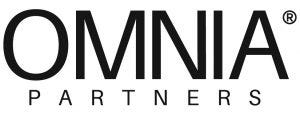
Omnia Partners
Police adopt license plate readers at an accelerating pacePolice adopt license plate readers at an accelerating pace
Without a doubt, more law enforcement agencies are acquiring automated license plate reader cameras and technology (ALPR).
July 25, 2022

Without a doubt, more law enforcement agencies are acquiring automated license plate reader cameras and technology (ALPR). Study producer Transparency Market Research (TMR) expects the global ALPR market to expand at a compound annual growth rate of 9 percent during the forecast period, 2020 to 2030. Much of the growth is linked to a rise in usage by police departments to improve public safety, according to the report summary. These devices are sometimes referred to automatic number-plate recognition systems (ANPR).
“ALPRs are devices that capture the objective, vehicle details of a criminal incident,” says Holly Beilin, head of public relations at Flock Safety. “Some ALPR vendors also sell products specifically for parking and transit applications. Flock Safety’s devices are only intended for helping solve violent and property crime, not parking, traffic enforcement or any other uses.”
The company’s license plate reading cameras provide 24/7 monitoring for every home, business and neighborhood. They help protect against property crime, violent crime, stolen vehicles and more. The firm has built out a public safety operating system that helps neighborhoods, businesses and law enforcement in 1,500+ cities work together to eliminate crime, protect privacy and mitigate bias. The company’s technology helps capture objective evidence. It uses that evidence along with machine learning to create and deliver unbiased investigative leads to law enforcement.
Research shows that technology can help fight crime, Beilin explains. “The International Association of Chiefs of Police (IACP) estimates seven in 10 crimes happen with a vehicle. At Flock Safety, we build technology that automatically gives law enforcement the vehicle evidence they need to investigate and clear cases faster, while mitigating human biases.”
She adds that national statistics offer solid proof. “Currently, over 2,000 communities use Flock Safety ALPR technology. Each day, our systems help solve over 600-700 crimes—an estimated 3 percent of reported crime in this country. And these encompass every type of crime, from homicide to assault to burglary and vehicle theft.”
It’s a team effort that includes resource-sharing, Beilin tells Co-op Solutions. “Many of our private customers share camera access directly with local law enforcement, creating a collaborative public safety infrastructure.” These private customers can include neighborhood groups, homeowners’ associations and local businesses.
The systems offer thorough coverage within a community. Flock Safety’s Falcon automatic license plate reader captures 97 percent of vehicle traffic and automatically detects vehicle characteristics (license plate, vehicle make, color and vehicle classification). “To prevent misreads, Flock Safety ALPR cameras double-check to ensure the state of the plate matches the plate listed on a state or national crime database before alerting law enforcement of the plate,” Beilin explains. The devices operate though solar power and connect to the cloud using fourth-generation global wireless communications standards.
The company’s ALPR technology assists law enforcement to not only solve, but also reduce crime. “Flock Safety’s proactive, real-time alerts of stolen vehicles, known wanted offenders, and missing/endangered persons do more than just help police solve a case—they actually help to reduce crime by ensuring those who are aiming to commit crime are not able to do so in a particular jurisdiction,” Beilin says.
She adds that the municipal official or government body that ultimately makes the buying decision for these kinds of readers varies, depending on the jurisdiction. “It is really dependent on the individual municipality and customer. Often, a city will need to seek approval from city council to purchase the devices. Other times, a city manager or chief of police is the main decision-maker. The important thing to note is that we have teams who are accustomed to working with all parts of a community and any official in order to address citizens’ concerns and questions, and ensure the technology is being used in an equitable, effective, and beneficial manner.”
Ohio community adds to its fleet of license-plate readers
North Olmsted, Ohio’s city council recently approved a two-year contract covering the acquisition, installation and monitoring tasks of 15 Flock Falcon cameras. The units are scheduled to be functioning this summer throughout the city. Monies from North Olmsted’s hotel/motel fund will be used to pay for this new deployment. Law enforcement agencies in communities throughout northeast Ohio currently rely on approximately 600 Flock cameras.
Over the past 10 years+, city officials have deployed not only a mobile unit attached to a police cruiser but also ALPR cameras near the intersection of the city’s Great Northern Mall shopping center. Cuyahoga County funds have been used to pay for the shopping mall installation.
Police searched and probed through the Flock database to solve a recent breaking-and-entering crime in the city, says North Olmsted Police Chief Bob Wagner. The database uncovered a suspect from another city’s camera. “It’s not a situation like Big Brother is watching,” Wagner told Cleveland.com. “Not everybody is being monitored. And it’s going to help us solve crimes.”
North Olmsted Mayor Nicole Dailey Jones is an advocate for the recent Flock camera acquisition. “The safety of all North Olmsted residents continues to be a top priority of my administration,” Jones said. “These cameras are a key tool in helping ensure that safety.”
OMNIA Partners Public Sector offers ALPR technology in a cooperative contract. The contract is through Traffic and Parking Control Co. Inc. (TAPCO). It covers ALPR systems from TIBA Parking Solutions. TIBA products integrate with parking facility call center services from TAPCO’s partner, Parker Technology. ALPR systems available through the contract offer benefits that include record license plates as cars enter and exit parking structures, increase payment compliance and make identifying violators easier.
Michael Keating is senior editor for American City & County. Contact him at [email protected].
.jpg?width=100&auto=webp&quality=80&disable=upscale)
.jpg?width=400&auto=webp&quality=80&disable=upscale)







